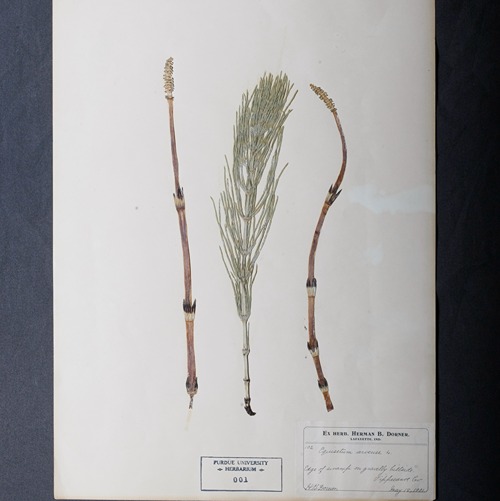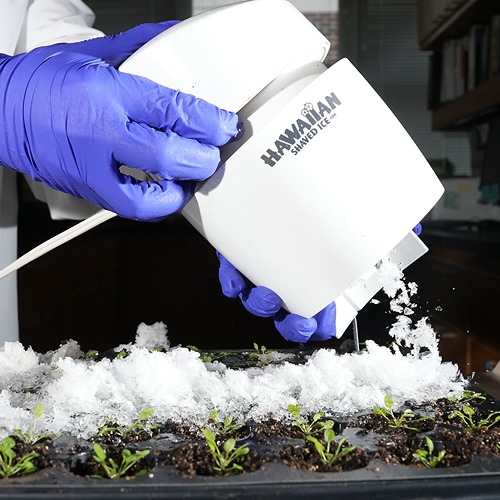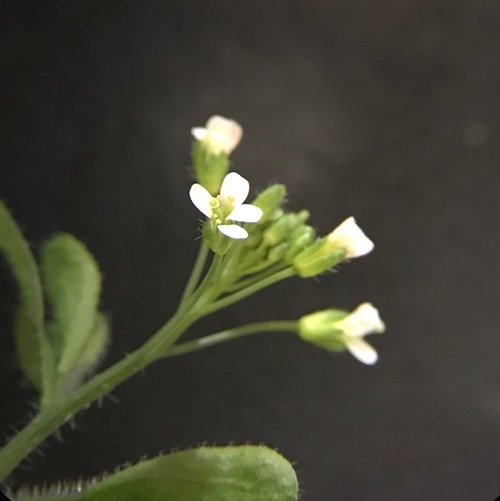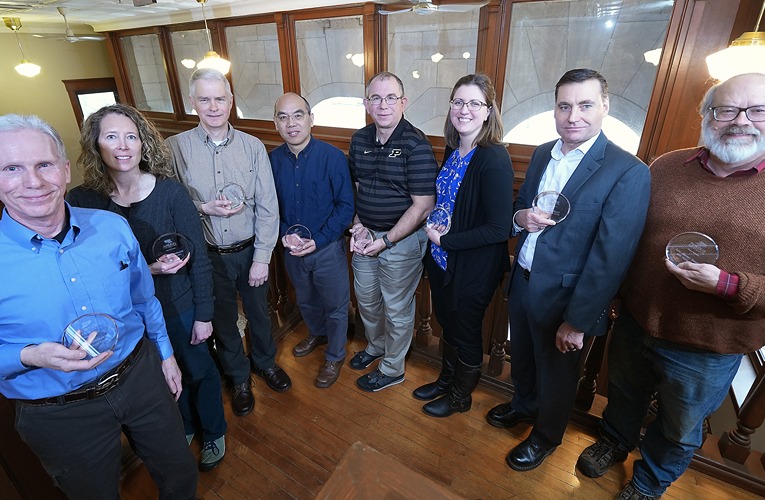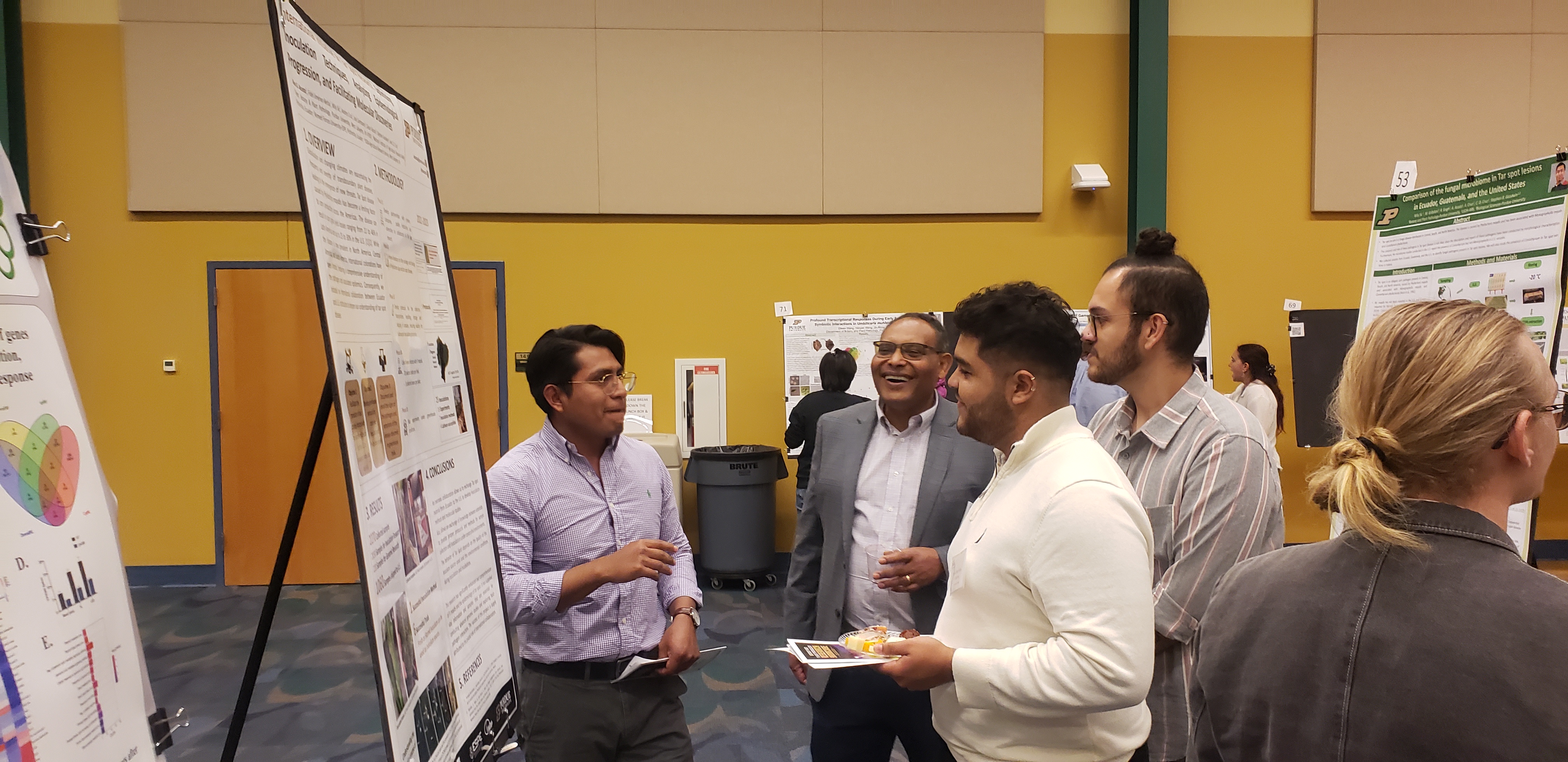Botany & Plant Pathology
Plant and microbial biology helps address challenges facing us in the 21st century and beyond…
Our research on plants and microbes helps: protect the environment, apply genetic knowledge to improve plants, manage natural resources, control weeds and diagnose plant diseases.
View our majors and degree options
CONTACT US
Department of Botany and Plant Pathology
Lilly Hall of Life Sciences, Room 1-446
915 Mitch Daniels Boulevard
West Lafayette, IN 47906
(765) 494-4615
botany@purdue.edu
Featured Story
Featured Story

Imagine broccoli’s short, sparse and ugly cousin, and you have Arabidopsis thaliana. It is native to Eurasia and some parts of Africa, but most consider it a weed. Fast-growing, quick flowering and able to thrive in small spaces—those...
Read MoreSupport
Your generous contributions help us provide scholarship opportunities for our students and support our dedication to the Research, Teaching, and Engagement mission of Purdue University.
Donate Now